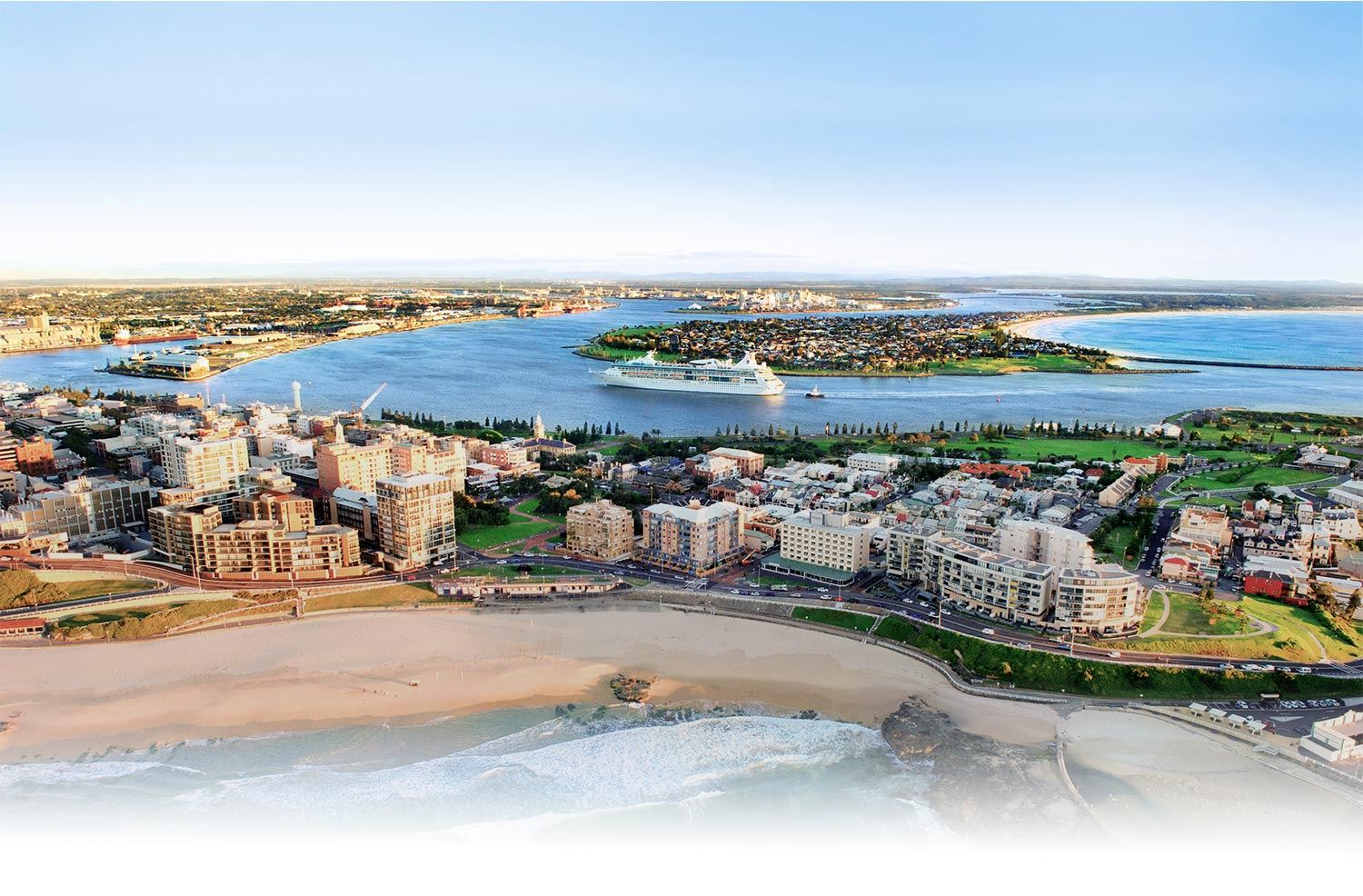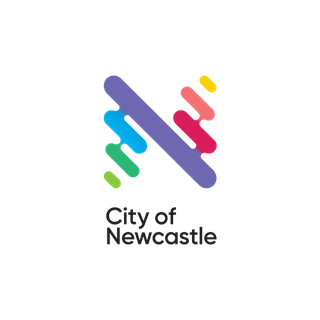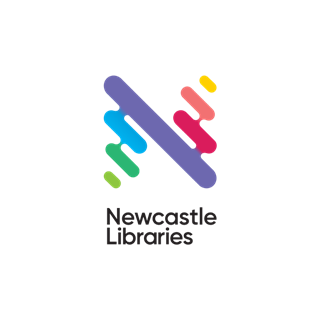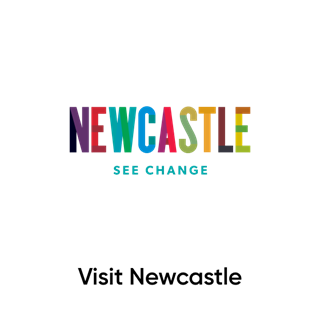
Advocacy Actions we've taken over the past three years
CN has actively contributed to a range of State and Federal Government advocacy forums over the past three years. The following is a list and short summary of the advocacy efforts led by the City Economy team. There are many other pieces of advocacy across CN that are not captured in the summary below.
Advocacy Actions we've taken over the past three years:
The City Taskforce was established to provide local leadership during the COVID-19 pandemic crisis. It was developed as a critical component of CN’s Community and Economic Response Package, a collaborative forum to identify non-health impacts for City of Newcastle business and community from the COVID-19 pandemic and generate local solutions, and to act as a local coordinating authority to oversee the second and recovery phases of the COVID-19 pandemic crisis. It was made up of 17 key city leaders across diverse sectors and independent evaluation identified that the Taskforce acted as a successful and coordinated vehicle for advocacy to other levels of government as to the most innovative and targeted support to assist heavily impacted local industries. The taskforce collaborated on a number of advocacy pieces including:
- The Newcastle Response - Youth Employment
- The Newcastle Response – Community Sector
- The Newcastle Response – Arts Sector
- The Newcastle Response – Tourism Sector
- The Newcastle Response – Innovation Economy
Key responses from state and federal government to advocacy commended the CN on the formation of the City Taskforce and highlighted the Taskforce’s novel and constructive nature. The Taskforce, in particular the targeted Newcastle Response outputs, inform the approaches adopted in this roadmap.
CN's submissions have included asks for Active Transport, Affordable Housing, Newcastle Art Gallery expansion, Coastal Management Planning, Ferry Terminal at Wickham, Flood Mitigation, Light Rail Extension, Lower Hunter Freight Corridor, Newcastle Airport Expansion, Pensioner Rates Rebates, Playground upgrades, Port of Newcastle Diversification, Sporting Amenity upgrades, Hunter Park Sports and Entertainment Precinct. Our submissions have highlighted the role that CN has been playing and a financial ask of either / both Federal and State Government. These budget submissions have been repurposed in the lead-up to the Federal and State Elections and served as an advocacy platform for the City of Newcastle.
CN has provided annual submissions to the IA Priority List focusing on transformative physical infrastructure for the city. IA is the nation’s independent infrastructure advisor, providing research and advice to governments, industry and the community on the infrastructure investments and reforms that will benefit all Australians. IA produce an annual (or biannual in 2020) Infrastructure Priority List. The IA Priority List is the authoritative guide to the priority infrastructure investments Australia needs to secure a sustainable and prosperous future. There were three identified national infrastructure projects within the Newcastle LGA: John Hunter Health and Innovation Precinct, Pacific Motorway (M1) Extension to Raymond Terrace, and East Coast deep water container port. In 2021, a further two City of Newcastle (CN) priority initiatives to the list: Broadmeadow Precinct Regeneration (Hunter Park) and Newcastle Airport Capacity Expansion. The Lower Hunter Freight Corridor remains the only key infrastructure ask that the City of Newcastle has been advocating for that is not currently listed on the IA Priority List.
CN is an active contributor to both the policy development and advocacy components of the Gateway Cities Alliance. A virtual delegation in October / November 2021 met with eight Federal representatives to unpack the objectives of the Gateway Cities Alliance and outline our policy work on telework / future of work, migration / population, transport / infrastructure and supply chain logistics. The virtual delegation included Lord Mayor / Mayor, CEO and / or council delegates from all three jurisdictions and the Committee for Geelong. Meetings included:
- Hon Sharon Bird MP, Member for Cunningham
- John Alexander OAM MP, Chair of Standing Committee on Infrastructure, Transport and Cities
- Sharon Claydon MP, Member for Newcastle
- Richard Marles MP, Member for Corio
- Tristan Passer, Adviser to Senator Bridget McKenzie, Minister for Emergency Management and National Recovery and Resilience, Minister for Regionalisation, Regional Communications and Regional Education
- Hon Michael Sukkar MP, Assistant Treasurer, Minister for Housing, Minister for Homelessness, Social and Community Housing
- Andrew Giles MP, Shadow Minister for Cities and Urban Infrastructure, Multicultural Affairs and Assisting for Immigration and Citizenship
- Hon Paul Fletcher MP, Minister for Communications, Urban Infrastructure, Cities and the Arts
CN made a submission to the House of Representatives Standing Committee on Communications and the Arts and its Inquiry into Australia’s creative and cultural industries and institutions. Newcastle has a thriving arts and cultural scene where creative pursuits are encouraged and artistic flair is celebrated, with more artists per capita than any other city in Australia. Creative industries across the Hunter region are worth almost $1 billion annually. Local Government is the driving force of the arts sector across Australia. At CN we operate a number of arts institutions including the Newcastle Art Gallery, Newcastle Museum, Civic Theatre, Playhouse Theatre, Fort Scratchley, as well as our network of Libraries and their programming. Collectively across these arts and cultural institutions, CN is investing $46 million in 2020/21. Further to operational support, CN has provided a range of targeted support to community led initiatives in response to COVID-19.
CN's submission focused on five key points to align with the Committee's terms of reference including
- Gateway Cities – a new concept for cooperation and delivery of policy;
- Newcastle Art Gallery expansion – direct economic benefits for the community;
- Civic Cultural Precinct – a new avenue for increasing access and opportunities;
- CN's comprehensive COVID-19 response to the creative industries;
- COVID-19 impacts – local insights and stories.
CN's submission reiterated our support for Faster Rail (travel speed of <200km/h) that would reduce travel times between the Sydney CBD and Newcastle CBD from three hours to two hours as an intermediate option to High Speed Rail (travel speeds of >250km/h). In principle, CN supports financing options that ensure equity of access, minimise existing and future inequalities, and manage property speculation including general taxation and government borrowing (noting record low bond rates and existing calls from the Reserve Bank of Australia for increased Commonwealth investment in productive infrastructure) and value capture.
CN provided a submission to the Select Committee on Regional Australia, which was delivered in partnership with the Hunter Joint Organisation and the Greater Newcastle Councils to align with the Greater Newcastle Metropolitan Plan. The submission highlighted seven agreed priorities including:
- Expanded investment in infrastructure, including the possibility of a City Deal.
- Commitment to the Greater Newcastle Metropolitan Plan.
- Greater commitment to longer-term strategic cycles that extend beyond election cycles to guide infrastructure investment and support growth of innovation catalyst sites such as the John Hunter Health Innovation Precinct and Williamtown Special Activation Precinct.
- Continued investment and policy support for the expansion of the Hunter’s twin gateways – the Port of Newcastle and Newcastle Airport.
- Utilisation of Federal procurement to create local industries and strengthen supply chains in 21st century industry sectors.
- Continued Federal investment in smart cities funding.
- Regional growth and diversification must be supported by research-intensive universities serving as anchor institutions such as the University of Newcastle.
CN's submission further expanded on these points by detailing Newcastle's role as a Gateway City, the Smart and Innovative Economy that exists in Newcastle and Infrastructure as a key enabler of change.
CN provided a submission to the Federal Government Senate Select Committee on Regional Jobs. CN outlined the opportunity for growth and support of quality jobs in regional areas as being of great significant for Newcastle. Greater Newcastle has seen increasing regional collaboration in recent years which is strengthening the opportunity for job creation. Furthermore, our submission detailed Newcastle's role as a Gateway City, the Smart and Innovative Economy that exists in Newcastle and Infrastructure as a key enabler of change.
The Local Jobs Program brings together expertise, resources and access to funding at the local level to support job seekers and their communities in each region. The program has a particular focus on reskilling, upskilling and employment pathways and is part of supporting Australia’s economic recovery from the COVID-19 pandemic. The program is informed by a Local Jobs Taskforce. CN's Economic Strategy and Government Relations Manager represents both CN and the Hunter Joint Organisation of Councils on this Taskforce.
CN provided a submission in response Public Accountability Committee’s inquiry into the integrity, efficacy and value for money of NSW Government grant programs. CN is significantly disadvantaged in both its eligibility and access to a large number of NSW Government Grant Programs. As part of their response to the inquiry, CN engaged the Hunter Research Foundation Centre (HRFC) to conduct an independent review of Newcastle’s experience with a range of state and federal government grants. The report found inconsistencies in the eligibility for NSW Government funds for the Newcastle Local Government Area (LGA). The City of Newcastle also presented its finding at a public hearing of the Public Accountability Committee.
CN provided a submission to the State Government Committee on Community Services and their Inquiry into options to improve access to existing and alternate accommodation to address the social housing shortage. For Newcastle, stable and affordable housing plays a critical role in the health and wellbeing of families and individuals. In particular, social housing provides an important safety net for our community. Currently in Newcastle there are:
- 10,700 housing stressed households
- 4,780 social housing properties (public & community, understood to be fully occupied)
- with a waitlist of 1,179 approved households on the NSW Social Housing Register
- 7,000 to 7,500 affordable property demand by 2041
- 139 delivered to date
CN asked the Committee to consider the following recommendations to improve access to existing and alternate accommodation to address the city's social housing shortage:
- Deliver a net increase in supply in Newcastle
- Housing First solutions (over meanwhile uses)
- Continue support for specialist homelessness services
- Deliver specific housing needs for diverse population groups
- Improve transparency and data on social housing
- Pilot project – Community Housing Debt Guarantee Scheme
CN provided a submission to the NSW Productivity Commissioner’s discussion paper, ‘Kickstarting the Productivity Conversation’. CN’s submission responded to the NSW Treasurer’s productivity priorities by focusing on learnings from our City Revitalisation program and by identifying future opportunities including embedding smart infrastructure within all urban development, and the opportunity to develop a population strategy, a Gateway Cities classification and using infrastructure as an enabler of change across the state.
CN makes annual submissions to the Local Government Remuneration Tribunal. CN submissions seek parity with the fees paid for Councils in the Major CBD category. Furthermore, CN requests a new category of Gateway Cities be created, showing comparable characteristics to the Major CBD category, and as such justifying a similar fee structure.
On behalf of the Lord Mayor and Deputy Lord Mayor, the Economic Strategy and Government Relations Manager represented CN on a webinar "Sydney rediscovered" hosted by ABC's The Drum, Ellen Fanning. The growth of Greater Sydney has a northerly and an east-west focus which has been reinforced in all metropolitan strategies for the past 20 years. The Greater Sydney Commission's current strategic plan is focused mainly around the success of the Western Sydney Parkland. In the context of COVID-19 and the climate crisis, there is an opportunity to reconsider the spatial distribution of future economic and population growth in NSW. Since the webinar, the NSW State Government has announced the creation of the Greater Cities Commission and a vision for six cities across the metropolitan region, including Newcastle.
CN raised concerns about Government policy regarding the provision of sewer services to Hexham, who’s sewage management systems pose significant pollution risk to the Hunter River. CN also inquired about channel widening in Wallsend, which was identified in Council’s adopted CBD Floodplain Risk Management Study and Plan to reduce flood frequency, risks and damages in the Wallsend CBD.













